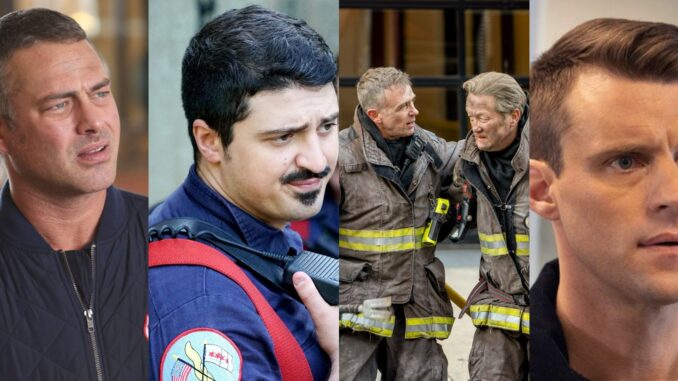
The flickering lights of the Chicago Fire set often simulate chaos and urgency, the wail of sirens a familiar soundtrack to heroism. But sometimes, even amidst the staged infernos and scripted rescues, a different kind of fire ignites – one that burns with the heat of shared grief. When a member of the Chicago Fire family, whether on screen or behind the scenes, departs, the tribute paid by the surviving crew is more than just a gesture; it’s a poignant testament to the real bonds forged in the demanding, intimate crucible of television production.
For years, viewers have watched the fictional firefighters of Firehouse 51 navigate life, death, love, and loss with a palpable sense of camaraderie. This isn't just acting; the very nature of such a long-running, ensemble show fosters a unique ecosystem. Actors, writers, directors, and crew spend countless hours together, sharing meals, celebrating milestones, comforting each other through personal struggles. They become, in essence, an extended family. So, when news ripples through the set that one of their own has passed, the shock isn't merely professional; it's deeply, unalterably personal.
The immediate aftermath is often characterized by a hush that settles over the bustling production. The usual banter quiets, the hurried footsteps slow, and glances linger – shared expressions of disbelief, sorrow, and solidarity. Each person, from the lead actor to the quietest grip, carries a unique memory of the departed: a shared laugh during a long night shoot, a moment of unexpected kindness, an unwavering professionalism. The void left isn’t just a missing name on a call sheet; it’s a note suddenly missing from a well-practiced chord, a piece of the set’s intricate machinery that once hummed with a specific, irreplaceable energy.
The tribute itself manifests in various forms, each imbued with a profound tenderness. It might begin subtly, with a collective decision to dedicate an episode, a quiet title card appearing at the end of a broadcast, transforming a routine viewing experience into a moment of shared remembrance. On set, it could be a simple, unspoken agreement to share stories, to keep the departed’s memory alive through anecdotes and laughter, even through tears. An actor might wear a subtle nod to their late colleague – a specific piece of clothing or prop – that only the initiated would recognize, a private signal of enduring affection.
Sometimes, the tribute takes a more public, yet deeply personal, form. Social media accounts, usually curated for show promotion, transform into digital memorials. Raw, unfiltered posts emerge: a candid photo shared by a co-star, accompanied by heartfelt words revealing the true character of the individual beyond their on-screen persona. These aren't just eulogies; they are open letters of love and gratitude, exposing the vulnerable core of a cast who are themselves often perceived as invincible heroes. "They weren't just a colleague," one post might read, "they were the glue that held certain scenes together, the first one to offer a kind word, the quiet force that made us all better."
The most powerful tributes, however, often unfold in the quiet corners of the set. It’s in the collective decision to push forward, to continue telling the stories of Firehouse 51 with renewed dedication, knowing that the departed would have wanted nothing less. It's in the way the crew supports one another through their grief, mirroring the loyalty and resilience their characters embody on screen. The show, which deals with themes of life, death, and the enduring human spirit, gains an unintended depth, a profound resonance that transcends fiction.
In the end, the tribute paid by the Chicago Fire crew to a late cast member is more than just a nod to their professional contribution. It’s an illustrative narrative of the human experience itself: the pain of loss, the beauty of connection, and the enduring power of family, whether by blood, by choice, or by the shared pursuit of bringing stories to life under the ever-present hum of the studio lights. It reminds us that even heroes grieve, and in their vulnerability, they reveal the truest form of strength.
